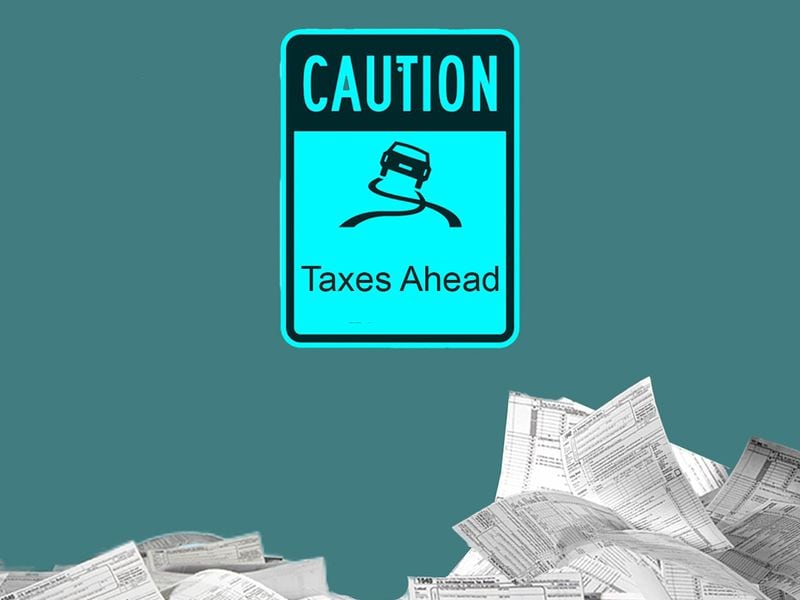Crypto
Last month, Kamala Harris endorsed a controversial 25% tax proposal on unsold assets. While Silicon Valley was up in arms about the plan, it barely registered with crypto investors who the plan would hit hard.
At its core, an unrealized capital gains tax would require individuals to pay taxes on the appreciation of their cryptocurrency holdings, even if they have not made a single sale.
Such a move could crush cryptocurrency markets.
The so-called “wealth tax” is a radical departure from traditional tax principles, which only apply to gains realized when an asset is sold. The plan would have devastating consequences for crypto investors and the broader economy and undermine the inherent value of cryptocurrencies as a store-of-value that operates outside the clutches of any singular government.
Harris and supporters of the proposal, first introduced in President Biden’s last budget proposal, have defended the tax as a levy on Americans worth more than $100 million. The wealth tax would “address substantial inequities in our tax system,” one White House official responding to the furor told Axios.
But the plan would hurt all investors by encouraging a sell-off by larger investors to fund their tax payments. This sell-off would drive down the price of cryptocurrencies and impact returns for everyday investors, including those who have only invested small amounts in the hope of improving their economic situation.
Prolific bitcoin investors such as Tim Draper, Michael Saylor, and Tyler and Cameron Winklevoss would be slapped with tax bills of up to $1 billion. Yes, that’s a billion, not a million.
Their crime? Recognizing the value of bitcoin before the majority of investors and purchasing the asset early. The Winkelvoss twins, who bought their bitcoin in 2013 when it was trading at $10, would be forced to pay $1 billion to the Internal Revenue Service.
Draper, who invested in 2014 at a cost-basis of approximately $632 per coin, would be slapped with a $423 million tax bill, according to Meanwhile analysis. Saylor, who personally holds 17,732 BTC, would be required to pay the IRS $212 million.
Because of how well bitcoin has outperformed in the last decade, the tax liabilities would be enormous. Over the last five years, the price of bitcoin is up 700%. Over the last 10 years, that figure is 17,000%.
Anyone with a basic understanding of the value of cryptocurrencies can see how this proposed tax would discourage long-term investment and encourage short-term trading. Diamond hands would be punished for believing in the long-term promise of bitcoin and forced to pay a king’s ransom on assets they hadn’t yet cashed out on.
What’s more, the move would stymy innovation and financial prosperity across the board. Wealthy Americans who own trillions of dollars worth of stock would be forced to sell enormous tranches of holdings to also fund their tax bills, while startup founders, largely compensated in equity, would be discouraged from taking their businesses public.
Marc Andreessen, the founder of top venture capital firm Andreessen Horowitz, said in a July podcast episode that startup companies would be “completely implausible” if the tax was enacted, while entrepreneur Mark Cuban told Fox Business that the proposal would “kill the stock market.”
The crypto industry is already being hammered by a SEC determined to rule through enforcement rather than provide clear rules of the road. Most companies want to do the right thing, but innovation is impossible under constant regulatory threat.
The IRS and SEC are often forced to enforce ambiguous laws that don’t necessarily fit with new technologies. But in this case, the impact is clear — stifling innovation and hurting the little guy (even with the appearance of only affecting the ultra wealthy).
The proposed unrealized capital gains tax is a flawed and dangerous policy that would have unintended negative consequences for all crypto investors, not just those worth more than $100 million.
Instead of stifling innovation and discouraging investment, the government should focus on creating a supportive regulatory environment that fosters the growth of the crypto industry. By doing so, we can harness the full potential of cryptocurrencies to drive economic growth and improve the lives of people around the world.
If the goal of the Biden-Harris administration is to raise huge sums for a social safety net, perhaps they might consider investing some of their own money in bitcoin and creating a strategic national reserve, instead of chasing investors who saw the promise of HODLing a long time ago.
Note: The views expressed in this column are those of the author and do not necessarily reflect those of CoinDesk, Inc. or its owners and affiliates.
Edited by Benjamin Schiller.
Disclosure


